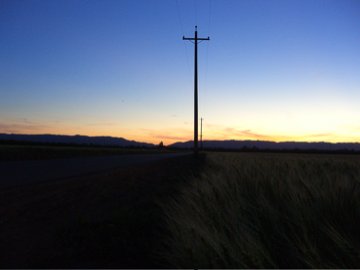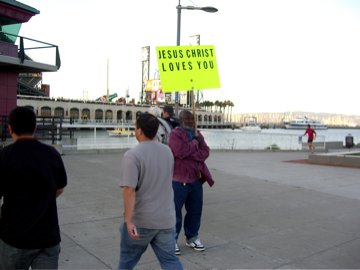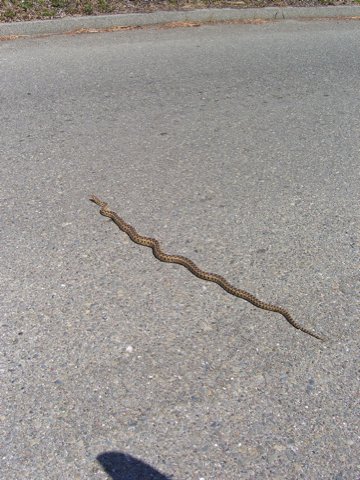Falwell Says ‘Misunderstanding’ Keeping Him out of Heaven — For Now
Conservative Christian leader still confident about receiving eternal reward
ALMOST HEAVEN, W. Va. (AP) — The Rev. Jerry Falwell, founder of the Moral Majority and a scourge to liberals, sodomites, unbelievers and the damned of all stripes, said Tuesday his death came quickly and without suffering but expressed impatience with a “misunderstanding” he said was delaying his expected speedy admission into the eternal company of the Lord.
“Jesus gathered me to his bosom, from right there in my office,” a still ashen-faced Falwell said in a hastily called press conference after his lifeless but still bulky form was discovered at Liberty University in Lynchburg, Va.. “It was painless, really, and as usual I felt well prepared to meet my Maker — in fact, I popped a Tic-Tac as soon as I started to feel my end was near.”
But Falwell said despite his fresh breath and a lifetime of chastising the ungodly, his expected quick admission to Paradise had met with an unanticipated, and unwelcome, delay.
“I can’t think of anyone more qualified to bask in the eternal light, the everlasting warmth of Our Lord Jesus Christ,” Falwell said. “I can’t think of anyone who was a more humble servant in the cause of the Almighty. Why God himself wasn’t at the front door to welcome me I can’t say.”
Instead, Falwell said, he was forced to stand in line “for an indeterminate time” with others among the recently dead also seeking admission to Heaven. The crowd included “obvious gays and lesbians” as well as “miscellaneous famine, flood and war victims” and many who appeared poor and homeless, Falwell said.
“Jesus talked about doing right by ‘the least of these,’ but a lot of those people are fit for nothing else than slow roasting in the unquenchable fires of Hell — for the lice if for no other reason,” he added. He said he intended to approach God or lesser Heaven officials to discuss expedited entry for well-qualified applicants such as himself.
The minister, whose sonorous sermonizing and fiery fulminations will no longer thunder through Lynchburg’s massive Thomas Road Baptist Church except on tape and DVD, said he was particularly incensed to find himself queued up behind “hip-hop fans, humanists, atheist lawyers, liberals, agnostics and ACLU riff-raff.” He said many of “questionable beliefs” were admitted into the Lord’s presence even after acknowledging in entry interviews that they enjoyed sex on television or in person and had worked to keep Christian prayer out of U.S. public schools.
“I don’t get it,” Falwell said. “Perhaps this is a celestial prank, a misunderstanding or a test of some kind. More likely, the hand of Satan is at work, right here at the very threshold of my eternal reward.” If Satan is not involved, Falwell said, “this is not making a lot of sense to me.”
The late minister reported he ultimately grew tired of waiting for an expeditious entry to Heaven and is now seeking temporary lodging elsewhere until the admissions backlog clears up. One result, Falwell said, is that a planned “Rev. Jerry Falwell: In Heaven and Loving It” day scheduled to be celebrated both in Heaven and on Earth has been postponed.
“We’ll reschedule,” Falwell said. “Sooner rather than later — as soon as the Lord gives me what’s coming to me.”
Technorati Tags: falwell



